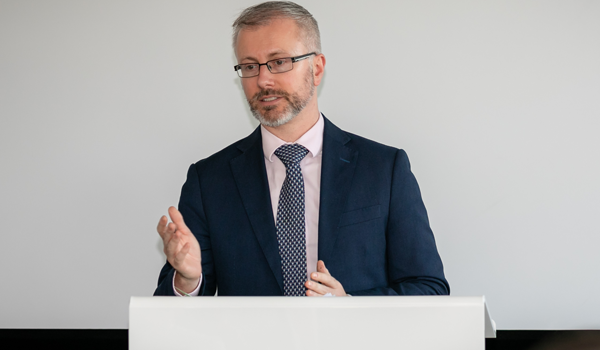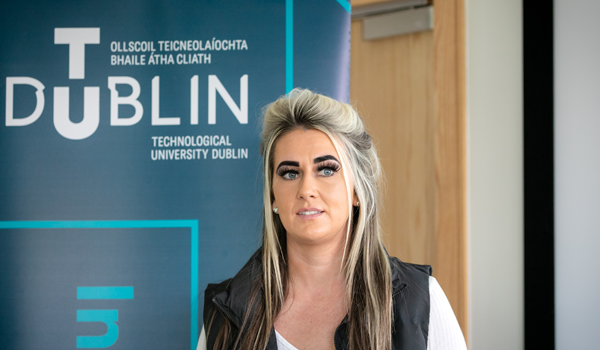Minister O'Gorman Launches Blanchardstown Traveller Development Group Report in TU Dublin

TU Dublin was delighted to welcome Minister Roderic O’Gorman, T.D., Minister for Children, Equality, Disability, Integration and Youth, to our Blanchardstown Campus on Wednesday for the launch of the
Only 1% of Travellers progress to third-level education compared to 55% of the general population in Ireland. To respond to this challenge, the Blanchardstown Traveller Development Group (BTDG) successfully applied for funding from the Irish Human Rights and Equality Commission to research the issue.

Minister Roderic O'Gorman
What Works in Supporting Travellers' Access and Participation in Higher Education was launched by Minister Roderic O'Gorman T.D., Minister for Children, Equality, Disability, Integration and Youth, on Wednesday on TU Dublin's Blanchardstown Campus.
The Minister was welcomed by Ms Catherine Joyce Collins, Blanchardstown Traveller Development Group Co-Manager and Dr Mary Meaney, Registrar and Deputy President, TU Dublin. Irish Human Rights and Equality Commission representatives also attended the launch along with Community Employment staff and participants from BTDG, Access Office, and School of Social Sciences, Law, and Education staff also joined the event alongside Community Development and Youth Work students.

Annemarie McDonnell
Annmarie McDonnell, Peer Researcher at BTDG, who undertook the research interviews with students and graduates from the Traveller community who attended TU Dublin, presented an overview of the key findings and recommendations of the research. The findings refer to the sense of isolation Travellers feel as a small minority in higher education, and the difficult choice of some to hide their ethnic identity due to fear of prejudice and discrimination. They reported the lack of wifi in accommodation, the issue of an 'official address' for SUSI purposes and barriers such as access to childcare. The findings also highlight the value of support provided by the Blanchardstown Traveller Development Group and the value of the links established with TU Dublin through placements and collaboration with academic and access staff in the University.
The report concludes with seven recommendations to support access, participation and outcomes for Travellers in TU Dublin, which may also apply to other higher education institutions and other minoritised ethnic groups such as Roma.
The recommendations highlight the value of having a staff member from the Travelling community working in Access Services in higher education institutions and the statutory responsibility of Universities to fulfil their public sector human rights and equality duty under the Irish Human Rights and Equality Commission Act 2014, (42) to assess, address and report on its duty to eliminate discrimination, promote equality and protect human rights. The summary of recommendations is included below.
- The employment of Travellers as Access Officers in higher education institutions.
- The creation of support networks for Traveller students to overcome isolation, open days and taster programmes for Traveller youth groups and adult groups.
- The fostering of relationships between the university and local Traveller and Roma organisations and networks.
- Employment is crucial. Employment is a barrier for Travellers and Roma, even with qualifications. Structures for employment opportunities and pathways to employment.
- Many Traveller students hide their identity. TU Dublin is responsible for actively ensuring Travellers feel welcome and included and that their cultural identity is celebrated on campus. It is recommended to run Traveller cultural awareness training for staff and students of TU Dublin.
- The visibility of aspects of Traveller culture and Roma culture on the university campus would contribute to greater diversity in the university.
- Compliance with the public sector human rights and equality duty requires explicit reference to the duty in the university's strategic plans and reporting framework. A whole of university duty, not solely EDI directorate duty.
Read What Works in Supporting Travellers' Access and Participation in Higher Education.
